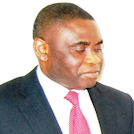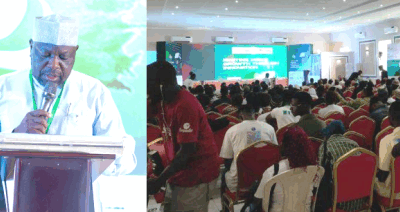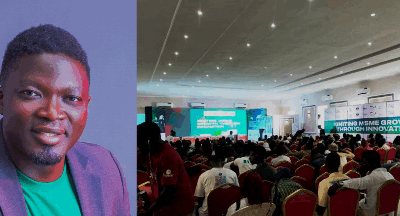The new Head of Public Affairs of the Nigerian Communications Commission (NCC), Tony Ojobo tells MARTIN EKPEKE, IT EDGE NEWS in Lagos that the commission is keen to get the right framework to drive broadband services and that the commission will penalize operators who fail to meet the parameters for service quality.
The impact of broadband is still not felt, especially in rural areas despite the landing of submarine cables in Nigeria. What is NCC plan to ensure broadband is deployed in rural areas?
NCC is in the process of appointing consultants who will work with the Commission and the industry to come up with strategies that will make this happen. My Chief Executive, Dr. Juwah has spoken extensively on several occasions on this to give assurance that broadband will get to every part of this country. Of course, you are aware that the Commission approach has always been the open access model to expand the reach of communication. But the full strategy or programme that NCC is adopting will come out when the consultants have finished with their survey and finished with their assignments and then forward their report to us. We are also aware that there was a broadband summit that was organized by ATCON sometime ago, that report is also with us at the commission. So, we are looking at all of the recommendations that came from that summit. Our approach is to look at what all the consultants working with the industry including those to be hired by the commission will come up with to build a comprehensive master plan. We also know that people have been calling for a broadband policy, that policy is very important because the policy gives direction. Of course, you know that the government has to come up with a policy; we are just implementers of policy. So, it’s also important, and we are aware the Honorable Minister of Communications Technology in her media briefing sometime in Lagos articulated on a broadband issue and policy. Those are all of the things that need to be in place before we can finally say that, ‘this is the road map, this is our strategy and this is what we intend to do.’
What is the meeting point between the CBN as a financial regulator and NCC as telecom regulator in the cashless economy that CBN is encouraging through mobile money?
You know before CBN came up with that statement, NCC has been part of a committee that has been working on that issue of cashless society. So, we have made our input into all of that. But of course, if you have to use the mobile phone as a platform, we have the service providers as operators under our purview as regulator and that is where the meeting point is. We are the regulators of the telecom service providers who operate the mobile phone services that make up the platform for the delivery of that mobile money service. How well we regulate that part of the industry that concerns the mobile platform important, and those others aspects of regulations that have to do with money are within the purview of the CBN. For us, our responsibility is that our service providers, the networks who have the platforms for the delivery of this service, and are under our regulatory framework must satisfy the minimum conditions necessary to deliver the service. The meeting point is that the CBN regulates the banks or institutions, behind the transfer of money because money has to be transferred maybe from the bank to another location or from one individual to another, that is movement of money or any payment instrument whether a transfer of credit from one individual to another. On the other hand, the NCC regulates the operator of the platforms used in the transfer processes. The NCC has been part of the committee working on this, right from the beginning and our input has been made into the final document that is coming out.
Quality of service still remains a headache in the telecom space in Nigeria. What truly can the telecom regulator do to enhance quality services?
There are number of things that are in the front burner. Of course the issue of number portability you know is there. And we at the NCC, we have reviewed number portability and when it takes off, it is going to put extra burden on service providers that their customers don’t port from their network to other networks. So, they will have the responsibility of making sure that their network is in shape. Also, the commission has issued an ultimatum in that direction to all operators expecting that certain parameter must be met by service providers to ensure service quality. The NCC would ensure compliance to these parameters. I think that also has sent the right signals to the networks to make sure that they improve on the quality of their services. Service quality is a priority of the commission and it intends to ensure that the parameters are fully complied with.
NCC has built an image of a very transparent and credible institution. As its new spokesman, what are the plans to sustain this image?
Well, that is why we have had this meeting today, we are soliciting the cooperation of the media to try to understand us, and we also try to understand them. To ensure the clarification of information before this goes to the public domain because it is vital that what the public get is truthful and accurate. We are soliciting the cooperation of the media and building on the existing relationship to properly educate and inform the people. We have talked on issue of capacity building for journalists who have to know the right terminologies even in this information age, so they can report appropriately the way they are suppose to report. So, those are some of the things we are also looking at, building capacity even for the ICT journalists and we believe that those kinds of things will ensure a mutual and beneficial relationship between us and the media. We are going to cooperate, my chief executive, Dr. Juwah is really open to this kind of interaction and that is why we are here.






























